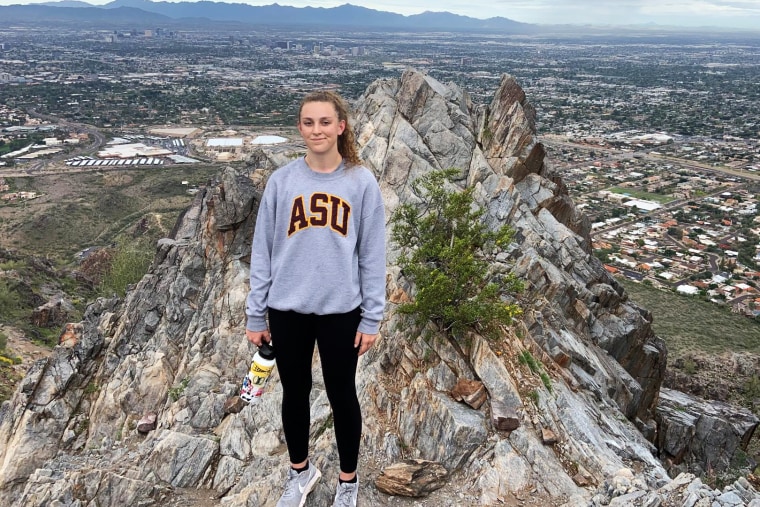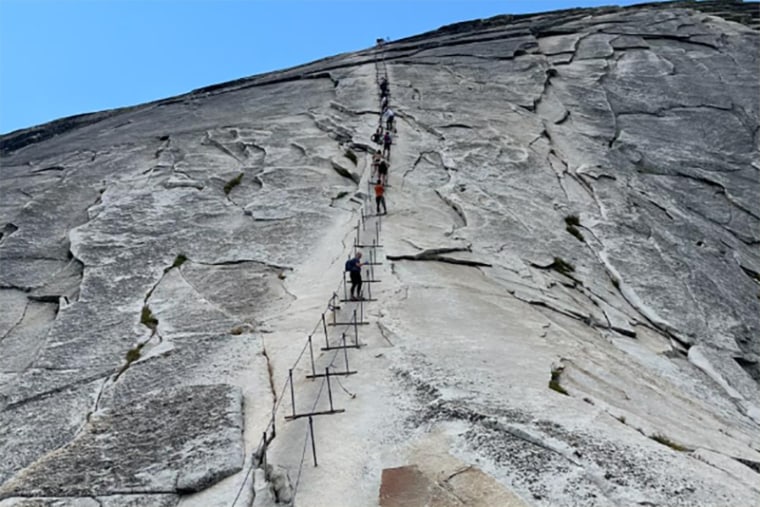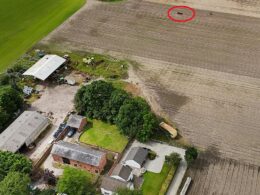An Arizona college student died this month after she slipped and fell from the Half Dome cables at Yosemite National Park, a family member told NBC News on Wednesday.
Grace Rohloff, 20, was hiking with her father on July 13 and had reached the summit of Yosemite’s Half Dome in California, one of the park’s most famous and challenging hikes. While she was descending the Half Dome cables during a sudden thunderstorm and downpour, she slipped on a wet part of the rock and fell down the mountain, said her father, Jonathan Rohloff.
The Mariposa County coroner’s office confirmed that the fall killed the woman.
Rohloff recalled his daughter’s excitement when they secured permits to hike Half Dome. He described her as “extremely detailed-oriented and thorough” and said she suggested they tackle the hike on the coming Saturday when the forecast predicted cloudy skies, mild temperatures and a minimal chance of rain.
But within minutes of their reaching the summit, it began to pour.
“That was probably the fastest I’ve ever had a storm roll in anywhere that I’ve ever seen,” Rohloff said. “That’s when Grace slipped off and fell, because it is 10 feet of pure slick granite between boards. I thought we were both very prepared and experienced hikers and aware of our surroundings, but that one took us by surprise.”

According to Yos e mite’s we bsite, the Half Dome cables were installed in 1919. The system consists of long metal cables anchored to the rock and supported by posts, with wooden boards placed between each set of posts.
Rohloff warned about the Half Dome cables’ dangers, comparing them to previous hiking experiences. He said he and his daughter had conquered many hikes across Arizona, including Humphreys Peak, the tallest peak in the state. They also hiked the Grand Canyon a few times a year, he said.
“I mean, hiking the Grand Canyon, there’s nothing quite as challenging. The overall trail at Yosemite is not more physically challenging than the Grand Canyon, but the cable system is unnecessarily dangerous,” Rohloff said.
He described the rock as a slick granite with few bumps for foot traction. The wooden planks were about 10 feet apart, without side planks or harnesses attached to the cables.

“Descending the cables with any bit of water, I think, is just an accident waiting to happen,” he said.
In high school, Grace Rohloff was a class salutatorian and led several sports teams. At Arizona State University, where she had just completed her second year, she was on track to graduate with her bachelor’s degree in 2½ years. She was set to student-teach at Valley Lutheran High School, her alma mater.
“One of the things that always struck me about Grace is how determined she was,” her father said. “But the No. 1 thing to know about Grace, beyond all of that, is how important she made everybody feel.”
He said his daughter provided respite care for a young woman with Down syndrome during the day and worked at a coffee shop at night. According to her father, her idea of a day off was a challenging hike. Shortly before her death, she had gotten a day off from work and spent it hiking the Grand Canyon solo.
“She did feel a little bit like Superwoman, like she could do anything,” Rohloff said.
Yosemite National Park officials did not respond to a request for comment and have not issued a statement about the death. The park’s g uidance on the Half Dome hike mentions that “relatively few people have fallen and died on the cables” but does not specify how often.
Rohloff hoped for a safer cable system at Half Dome, believing his daughter would have wanted that as her legacy.
“If she could say anything from heaven right now, it would probably be like, ‘I’m OK and I’m waiting for you, Dad, and for all my family, but let’s make some changes to help the next person,'” Rohloff said.
,







